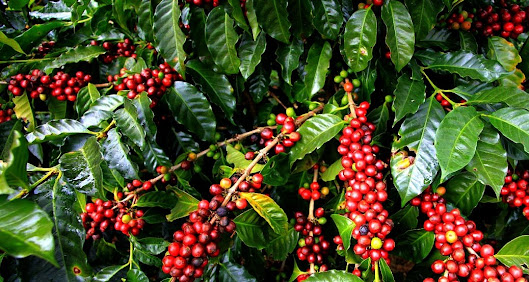 |
| Coffee plant |
Wayanad, a scenic district in Kerala's Western Ghats, is well-known for its verdant green scenery, cascading waterfalls, and abundant biodiversity. But many people might not be aware that it also has some of the most stunning and successful coffee estates in the nation. We shall examine the development, effect, and history of coffee in Wayanad in this blog post, as well as the reasons why this region should be on the travel itineraries of coffee lovers.
The British first planted coffee in the area in the 1800s as part of their efforts to diversify Malabar's economy. Since then, coffee has been grown in Wayanad. As one of the main cash crops in Wayanad today, coffee farming now occupies around 25,000 hectares of land. Both arabica and robusta coffee are produced in the area, with arabica being the more common variety among farmers.
The growing of coffee in Wayanad is distinctive for using conventional, organic farming techniques. Many farmers in the area still utilise organic fertilisers and pesticides, and they depend on the shade provided by local trees to shield their coffee plants from the sun.As a result, the region's natural beauty is preserved and a higher-quality coffee with a distinctive flavour profile is produced.
In Wayanad, visiting a coffee plantation is a unique experience. The coffee plant is cultivated beneath the shade of numerous tropical plants, including vanilla, cardamom, and pepper, making it the ideal location for those who enjoy the outdoors. It's the ideal spot to unwind and recharge because of the stunning surroundings, coffee's aroma, and chirping birds.
A common tourist activity in Wayanad is a coffee tour. It includes a trip to a real, functioning coffee plantation where guests may discover the different steps involved in growing coffee, from planting and harvesting to processing and roasting. Additionally, they can take part in activities like picking coffee beans and study the conventional ways of preparing coffee.
Along with the coffee plantations, Wayanad also features a number of open to the coffee estates and research facilities. These resources offer a wealth of knowledge on the Wayanad region's coffee history and culture as well as the most recent findings and advancements in the industry.
Wayanad's coffee not only draws tourists but also supports the livelihoods of many local farmers. The distinctive blend of soil, climate, and conventional agricultural techniques is responsible for the region's coffee's notoriety for its distinct flavour and aroma. Because of this, specialty coffee shops and coffee enthusiasts all over the world are very interested in it.
In conclusion, Wayanad is not only a stunning region but also a haven for coffee enthusiasts. The area's coffee plantations serve as a significant tourist destination in addition to providing a means of life for local farmers. Coffee lovers must visit Wayanad because of the distinctive flavour and scent of its coffee, the stunning scenery, and the region's traditional farming methods.In order to explore the colourful world of coffee growing in Wayanad, put a visit to a coffee plantation in your schedule the next time you plan a trip there.









0 Comments